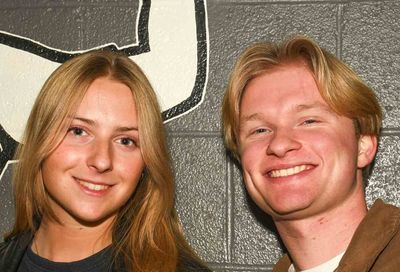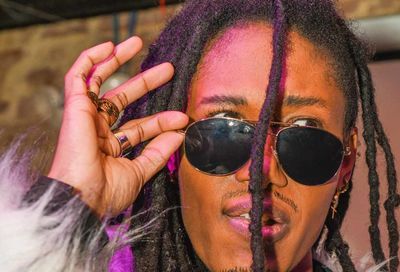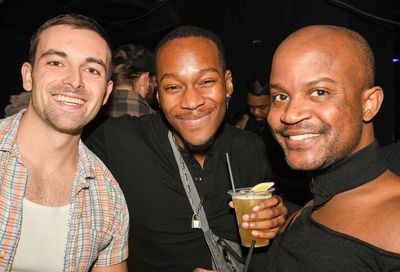The Legitimacy Lie
A few foes of marriage equality are gearing-up for D.C. elections
March was a heady month in the District of Columbia. The influx of same-sex couples at the marriage bureau boosted applications to six times their normal rate. Activists have cause to celebrate.
Opponents, however, vow to defeat every incumbent who supported the new law. Bishop Harry Jackson, Ward 5 Advisory Neighborhood Commissioner Bob King, and the National Organization for Marriage have organized a political action committee for that purpose. Mayor Adrian Fenty and seven pro-equality City Council members are up for election this year.
The new PAC will back same-sex marriage opponents like mayoral candidate Leo Alexander, who says, “I think it was arrogant on the mayor’s part and the [C]ouncil, just 14 individuals deciding how 600,000 should live.” This is not mere opposition. Alexander describes representative government as if it were villainy. On this issue, we are told, only a direct vote by the people is legitimate. The most vulnerable incumbent, Ward 5 Councilmember Harry Thomas Jr., says, “I think people who push that message have a message of intolerance for other people’s rights.”
The cries of illegitimacy echo rhetoric at the national level. Unlike the 2000 election, in which George W. Bush won fewer popular votes than Al Gore and was installed after the U.S. Supreme Court halted the Florida vote recount, the 2008 election saw Barack Obama win 53 percent of the popular vote and 365 electoral votes. Yet Rush Limbaugh refers to the Obama ”regime” as if there was a coup, and is reinforced by Sarah Palin’s know-nothing mockery and Glenn Beck’s deranged conspiracy mongering. Newt Gingrich calls the centrist Obama the most radical president ever.
The right wing is in court hoping to force a ballot measure in D.C. so they can use this Big Lie technique to overturn marriage equality. Polls suggest voters would uphold equality, but such a campaign would be expensive and rancorous. In fact, though, voters have spoken many times through their representatives. In 1979, the D.C. Council under Arrington Dixon prohibited ballot measures that would infringe people’s rights. Congress has never challenged that prohibition, which is backed by local civil-rights veterans like Lawrence Guyot and Rep. Eleanor Holmes Norton (D-D.C.), who support equal protection for all the families in our city. No anti-gay candidate has won election here in decades.
Bishop Jackson and Commissioner King talk as if the resounding passage of the marriage-equality bill happened while voters weren’t looking. In fact, our victory was won not by deception but by decades of working within the system and building relationships from the neighborhoods to City Hall. We won despite endless fear-mongering from Jackson’s coalition, thanks in part to the voices of 200 gay-affirming clergy. Those who continue to demonize us for political gain have badly underestimated both gay-rights advocates and Washington voters.
Opponents had the opportunity to lobby on the marriage bill, testify against it during two days of hearings, and testify at several hearings before the Board of Elections and Ethics. Those registered to vote in D.C. (as many opponents are not) can also vote in this year’s election.
The opposition’s electoral threats face the inconvenient fact that the leading contenders for mayor, Council chair, and Democratic At-Large councilmember all support marriage equality. Black gay Republicans Marc Morgan and Timothy Day are running in Wards 1 and 5, respectively. The anti-gay bench looks thin.
We nonetheless have work ahead of us to ensure that supportive incumbents are rewarded for doing the right thing. In races where our friends are running against each other, we have an embarrassment of riches that would make GLBT people in most jurisdictions envious. If, as many of us believe, our opponents are on the wrong side of both history and the D.C. electorate, we need to keep proving it at the polls.
Richard J. Rosendall is a writer and activist whose work has appeared on Salon.com and the Independent Gay Forum (www.indegayforum.org). He can be reached at .
Support Metro Weekly’s Journalism
These are challenging times for news organizations. And yet it’s crucial we stay active and provide vital resources and information to both our local readers and the world. So won’t you please take a moment and consider supporting Metro Weekly with a membership? For as little as $5 a month, you can help ensure Metro Weekly magazine and MetroWeekly.com remain free, viable resources as we provide the best, most diverse, culturally-resonant LGBTQ coverage in both the D.C. region and around the world. Memberships come with exclusive perks and discounts, your own personal digital delivery of each week’s magazine (and an archive), access to our Member's Lounge when it launches this fall, and exclusive members-only items like Metro Weekly Membership Mugs and Tote Bags! Check out all our membership levels here and please join us today!























